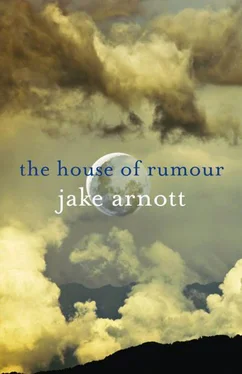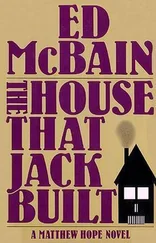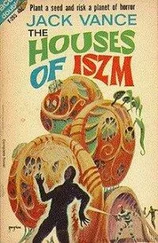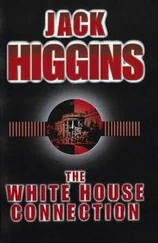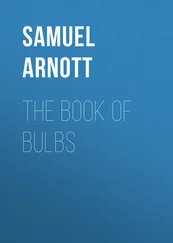‘A witch-hunt?’
‘Oh yes. You wait and see.’
And there was something strange in the atmosphere that summer. Nemo and Larry had been having this long-term argument over strange lights in the sky and mysterious objects seen in the heavens. The previous year there had been a whole spate of ‘ghost rocket’ sightings over Scandinavia. Larry took the line that it could be the Soviets testing reverse-engineered Nazi rocket technology. Nemo always liked to speculate about extraterrestrial activity.
Then in June a pilot in Washington State claimed to have spotted nine circular objects shooting past him in perfect formation. The newspapers picked up the story and some subeditor plucked a snappy headline out of the report of the weird craft. There was a word for them now — the ‘flying saucers’ had arrived. More sightings followed.
‘Larry doesn’t want to believe in them,’ Nemo complained.
‘Well, I’m yet to be convinced,’ Larry retorted.
‘What about those things you saw in the war?’
‘Just because you see something doesn’t make it real.’
‘So what is this, mass hysteria?’
‘A sign of the times,’ Larry insisted. ‘An adjustment between inner space and outer space.’
‘What do you mean?’
‘The flying saucers hover, don’t they? They hover between disenchantment and re-enchantment.’
‘Yeah.’ Nemo nodded with a smile, obviously liking the idea.
‘Remember what we said before the war?’ Larry went on. ‘ “If you can’t change the world, build a spaceship.” Well, that’s what’s happening now. We’re building spaceships in the air. Spaceships of the imagination.’
By that fall the whole nation was delirious with visions of flying saucers, with eyewitness accounts almost every week. Flying saucer clubs were set up across the country and regular articles in the press speculated about the phenomenon. They caused a split in the whole of the SF world, not just between Larry and Nemo. Most of the writers I knew didn’t believe in them. I had this nagging feeling that they resented losing the monopoly of contact with other worlds. The craze certainly revitalised the genre, though. There was a demand for new stories and much reprinting of old ones. One of mine from 1941, ‘Atom Priestess’, was bought by a New York publishing house for a hardback anthology of short stories.
But elsewhere things were not looking so bright. In November, Max Iann was cited for contempt for refusing to give testimony to the House of Un-American Activities. He was blacklisted. I was known to have radical connections, I’d even been to a few Communist Party meetings before the war, but I wasn’t important enough to warrant complete excommunication. Instead I joined that peculiar purgatory that came to be known as the ‘greylist’. None of the big studios would hire me for the time being but I could get work on Poverty Row, that notorious collection of small-time production companies that churned out cheap B-movies.
Nemo lost his job at Lockheed. He’d been involved in the union and was still very politically active. Now he was certain that the FBI were keeping tabs on him. He and Larry were planning a road trip to Mexico.
Then in December, Aleister Crowley died. He had been in poor health for some time and addicted to heroin. He had worn himself out from his wild life, it seemed. I heard that Jack Parsons had wanted to be reconciled with his former master but had left it too late. I hadn’t been to any Lodge meetings since leaving number 1003, nor had I kept in touch with any members of the Order. But it was the death of Crowley that finally marked the end of that part of my life, as it did, I think, for many others. I formally quit the Ordo Templi Orientis. And I kidded myself that I had finally got over Jack Parsons.
Larry came to see me the night before he and Nemo were to set off on their journey south.
‘I just came to say goodbye,’ he said.
‘I hope you and Nemo have a good time.’
‘He’s driving me crazy with all this flying saucer stuff.’
‘Maybe there is something in it.’
‘Well, he says he saw something years ago. Remember that night at the Arroyo Seco?’
There was an awkward moment when I remembered what Larry had seen that night. That group of us, drugged and naked, making out in a glade.
‘It certainly was a mystical night,’ Larry continued, seemingly oblivious to my embarrassment, either arch or innocent: it was so hard to tell with him these days. ‘That was the night we hexed the Deputy Führer into flying to Scotland, wasn’t it?’
‘Well.’ I shrugged.
‘Do you still believe in that stuff, Mary-Lou?’
He was staring at me intently. I felt sure that he meant whether or not I still believed in Jack Parsons.
‘I don’t know any more,’ I told him.
‘I remember you once said that you wanted to know everything.’
I laughed.
‘I don’t blame you,’ he said. ‘But, you know, in the 458th Bomber Squadron, when we were flying missions, we had this deal as aircrew that when we were talking informally and off the radio, there would be no real difference between fact and fiction. It made sense when you were up in the air, helped you through it.’
Larry hunched up a little as he said this and I could see the anxiety in his eyes.
‘I’m having trouble on the ground, Mary-Lou. I’m writing this novel, you know, a proper novel.’
‘That’s good.’
‘No it’s not. It’s not any good. I—’ He sighed. ‘I just need to get it out of my system. I’m still having trouble with reality, you know, this derealisation thing I told you about. How about you?’
‘What?’
‘Are you writing anything?’
‘Just script notes.’
‘You never did finish “The City of the Sun”, did you?’
‘No. Maybe you should have a go at it.’
‘Yeah.’ He grinned at me. ‘Maybe I will.’
In the New Year I began work on Zombie Lagoon . The director was drunk for the entire four-week shoot, and with no first or second assistant I found myself having to take over at times. The producer was young and smart and sober. I always assumed that Dexter Roth had found himself on the greylist too. There seemed no other reason that someone as bright and ambitious would end up producing trash in Poverty Row. He would wear bright sports jackets with open-necked shirts and horn-rimmed glasses, looking every bit the hip intellectual. He liked to argue that mass culture could be experimental, and he was meticulous about the script, constantly tweaking lines of dialogue or even changing the emphasis of a line. He seemed to look for hidden meaning in the cheapest material.
And he had respect for my work as a writer. He read some of the stories I had written for the pulp magazines and he said that he loved science fiction and fantasy. He wanted to find a really good idea from that genre once we had finished the zombie movie.
Dexter was sensitive, with perfect manners and a fussiness about his appearance. I assumed he was a fruit until he made a pass at me on the night of the wrap party. I told him that I’d had my heart broken.
‘What a dumb guy,’ he said.
‘No,’ I replied. ‘He’s a genius.’
I thought that this would rile him but instead Dexter was intrigued. He seemed genuinely curious about everything and everybody, which made him easy to talk to. I told him all about Jack and my strange life at number 1003.
‘So you, like, believe in magic?’ he asked.
‘I don’t know what I believe in any more. What about you?’
‘Me?’ He smiled. ‘I like to keep an open mind.’
By the time Larry and Nemo got back from Mexico, Dexter and I had started dating. It was a tentative kind of courtship, which suited me fine. I wasn’t really ready to get too emotionally involved with anyone just then. And I wasn’t sure what I felt about Dexter yet, except that I really enjoyed his company and I felt safe with him. And he had this ability to get on with almost anybody. He and Nemo hit it off the first time they met, engaging in a deep discussion about politics in Latin America. Even Larry, who was very wary of Dexter at first, soon warmed to him. I even felt a little disappointed that Larry didn’t seem to be jealous.
Читать дальше
